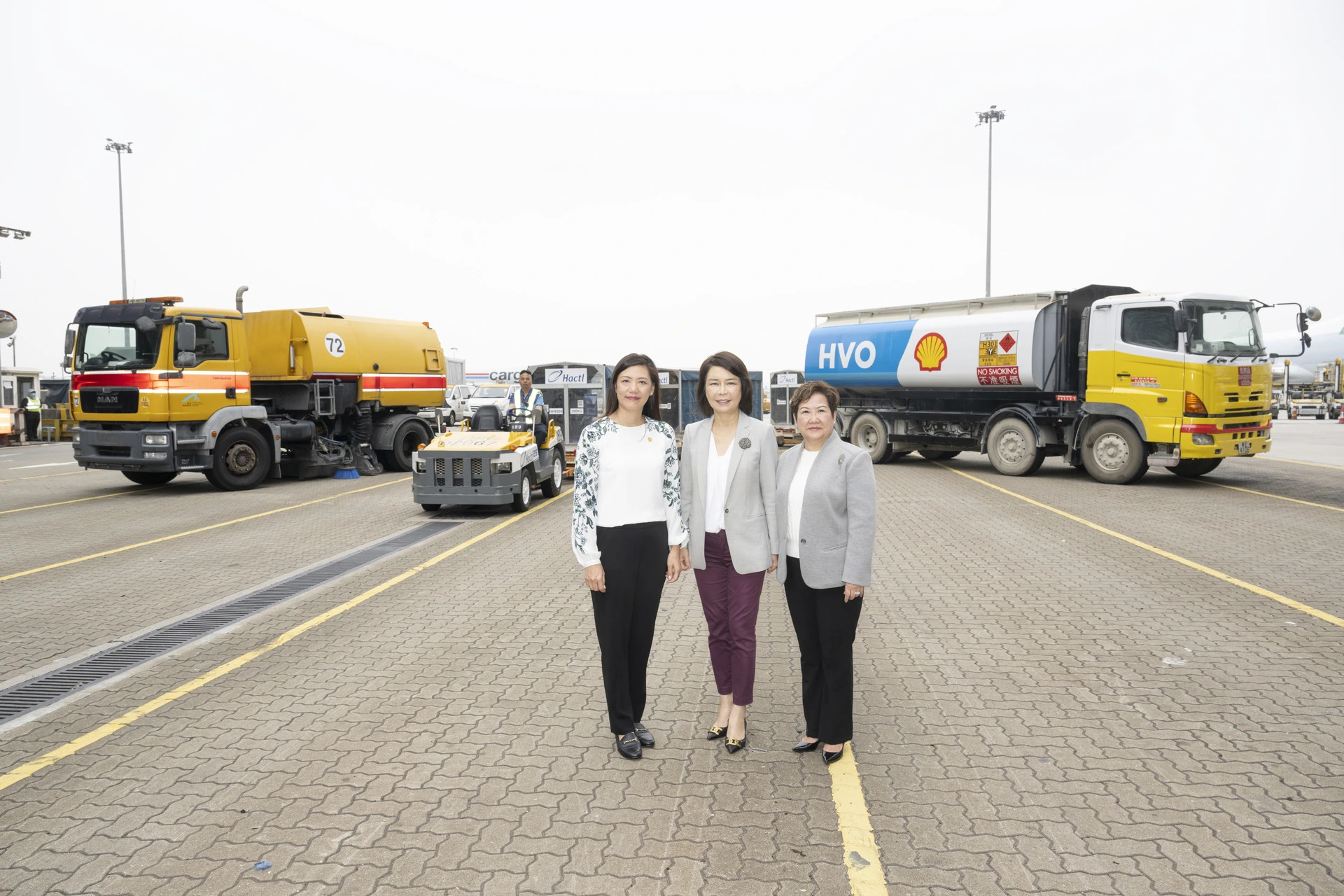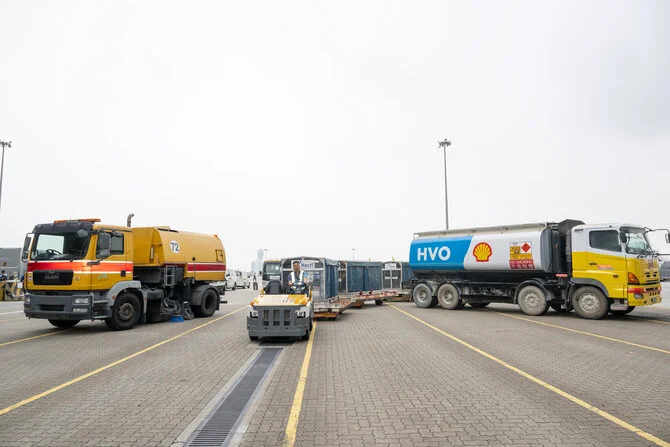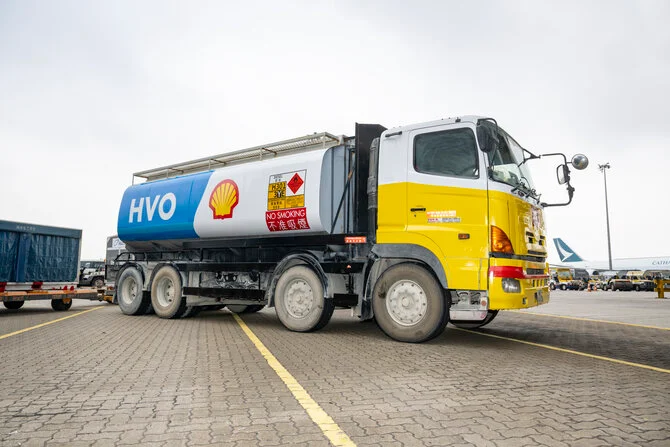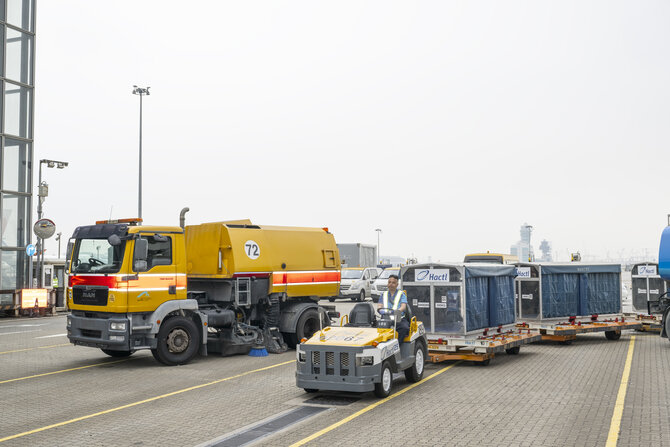

Climate change effects are being seen globally, with many countries facing more frequent extreme weather events. AAHK recognizes that climate change is the most pressing environmental issue over the past decades and has been working with the Hong Kong International Airport (HKIA) community for over 15 years to set target, measure, report and reduce carbon emissions.
AAHK has pledged with 29 aviation-related business partners (BPs) to achieve Net Zero Carbon by 2050, with a mid-term target of reducing carbon emissions by 55% compared to a 2018 baseline by 2035. The Pledge is supported by HKIA Decarbonisation Roadmap to 2035, focusing on expanding our electric vehicle fleet, promoting and adopting renewable energy and low-carbon fuels, and innovative energy management. A key pathway to lowering carbon emissions is the introduction of renewable diesel, as a transition fuel for hard to electrify fleet.
Launch of Renewable Diesel in Ground Support Equipment at Hong Kong International Airport
After significant groundwork, in 2024, AAHK launched a Renewable diesel (RD) pilot project in collaboration with Hong Kong Air Cargo Terminals Limited (Hactl) and Shell Hong Kong Limited, making HKIA the first airport in Asia to use RD in GSE.
The one-year RD pilot comprises of multiple phases, commencing with trialing RD on a small number of Ground Support Equipment (GSE) then gradually expanding to a larger fleet. In addition to GSE, RD has been tested on generators and other non-road mobile machinery (NRMM).
Renewal diesel (RD), known as Hydrogenated Vegetable Oil, is a drop-in fuel produced from renewable resources such as waste animal fats, vegetable oils, and used cooking oils. It is fully compatible with diesel engines of commonly used Ground Support Equipment (GSE) and mobile generators. It has been adopted by major aviation hubs in Europe and the United States[1]. As a cleaner fuel, RD can reduce greenhouse gas emissions by around 90% compared to conventional diesel, significantly lowering the airport's carbon emissions and improving air quality[1].
Funding for the Pilot – the HKIA Greenovation Fund
Hactl runs the pilot project with sponsorship by the HKIA Greenovation Fund. Following the launch of the RD pilot, AAHK has extended sponsorship to other airport business partners to carry out similar pilots. AAHK has also formed an RD working group for business partners to share insights on RD usage, efficiency and fuel performance as well as other logistical details. By sharing information, the collaborative partners will understand if this fuel is a good option to scale up across the airport as a transition fuel.
Established by the AAHK, the HKIA Greenovation Fund aims to provide financial support to business partners working towards Net Zero Carbon by exploring and piloting new carbon reduction technologies, thereby accelerating the airport's efforts in reducing emissions.
The AAHK will continue to promote the use of renewable diesel, with the goal of achieving Net Zero Carbon by the end of 2050.
Reference:
[1] HKIA. (2024). Exploring Sustainable Fuel Alternatives - April 2024.
https://www.hongkongairport.com/iwov-resources/html/sustainability/HKIA_E-Newsletter_Issue_17_Apr2024.html





